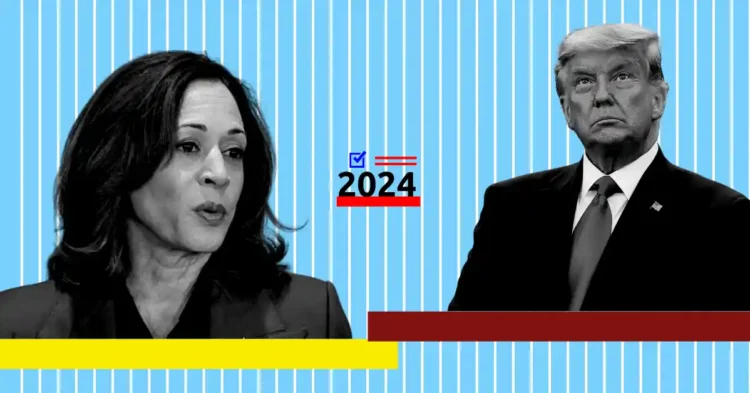The 2024 U.S. Presidential Election is shaping up to be unlike any other, with cryptocurrency taking an unexpected spotlight. The contrasting views of Donald Trump and Kamala Harris on crypto have sparked widespread attention and debate. Once a critic, Trump has embraced the digital currency landscape, while Harris adopts a cautious stance, prioritizing regulatory measures over unfettered support.
Trump’s Surprising Shift Toward Crypto
Donald Trump’s transformation from a vocal critic to a staunch supporter of cryptocurrency has been nothing short of astonishing. This year, he made headlines by embracing crypto donations for his campaign and launching a decentralized finance platform called “World Liberty Financial” (WLF). His promise to dismiss SEC Chairman Gary Gensler if elected further signals his commitment to reshaping the regulatory landscape.
To demonstrate his newfound dedication to the crypto community, Trump appeared at the Bitcoin Conference, engaging in a Bitcoin transaction at a New York bar. However, despite these efforts, WLF has only managed to raise $12.9 million, falling significantly short of its ambitious $300 million target. Concerns have been raised regarding the platform’s structure, as a substantial 75% of the revenue is earmarked to benefit Trump’s family, leading to questions about potential conflicts of interest.
Polls Show Trump Ahead!
Recent data from prediction market platform Polymarket indicates that Trump holds a 59.8% chance of winning the election, while Harris lags behind at 40%. Analysts attribute Trump’s lead, in part, to his growing support for cryptocurrency, especially as Bitcoin edges closer to the $70,000 mark.
Harris’ Careful Stance on Crypto—Is It Enough?
In stark contrast, Kamala Harris has taken a more measured approach toward cryptocurrency. Her campaign does not heavily spotlight crypto, instead focusing on safeguarding investors, with a particular emphasis on protecting Black Americans who hold digital assets. Her “Opportunity Agenda” underscores the importance of regulating cryptocurrency to mitigate risks such as fraud.
Despite her efforts, Harris’s attempts to engage with the crypto community have seen limited success. A recent virtual town hall failed to gain significant traction, and key figures like Tyler Winklevoss remain skeptical. Nonetheless, she has garnered support from notable industry figures, including Ripple co-founder Chris Larsen, who contributed $1 million in XRP to her campaign, indicating that some appreciate her cautious approach.
How Crypto Is Shaping Politics
As the election approaches, voters are closely scrutinizing the divergent strategies of these two candidates regarding cryptocurrency. Trump’s bold promises contrast with Harris’s emphasis on investor protection. With Bitcoin nearing an impressive $70,000, the role of cryptocurrency in this election cannot be underestimated. While Trump currently leads in the polls, the dynamic nature of politics means anything could change before Election Day.
What do you think? Will Trump’s bold crypto moves secure him a win, or does Harris’s cautious approach resonate more with voters? Share your thoughts!










